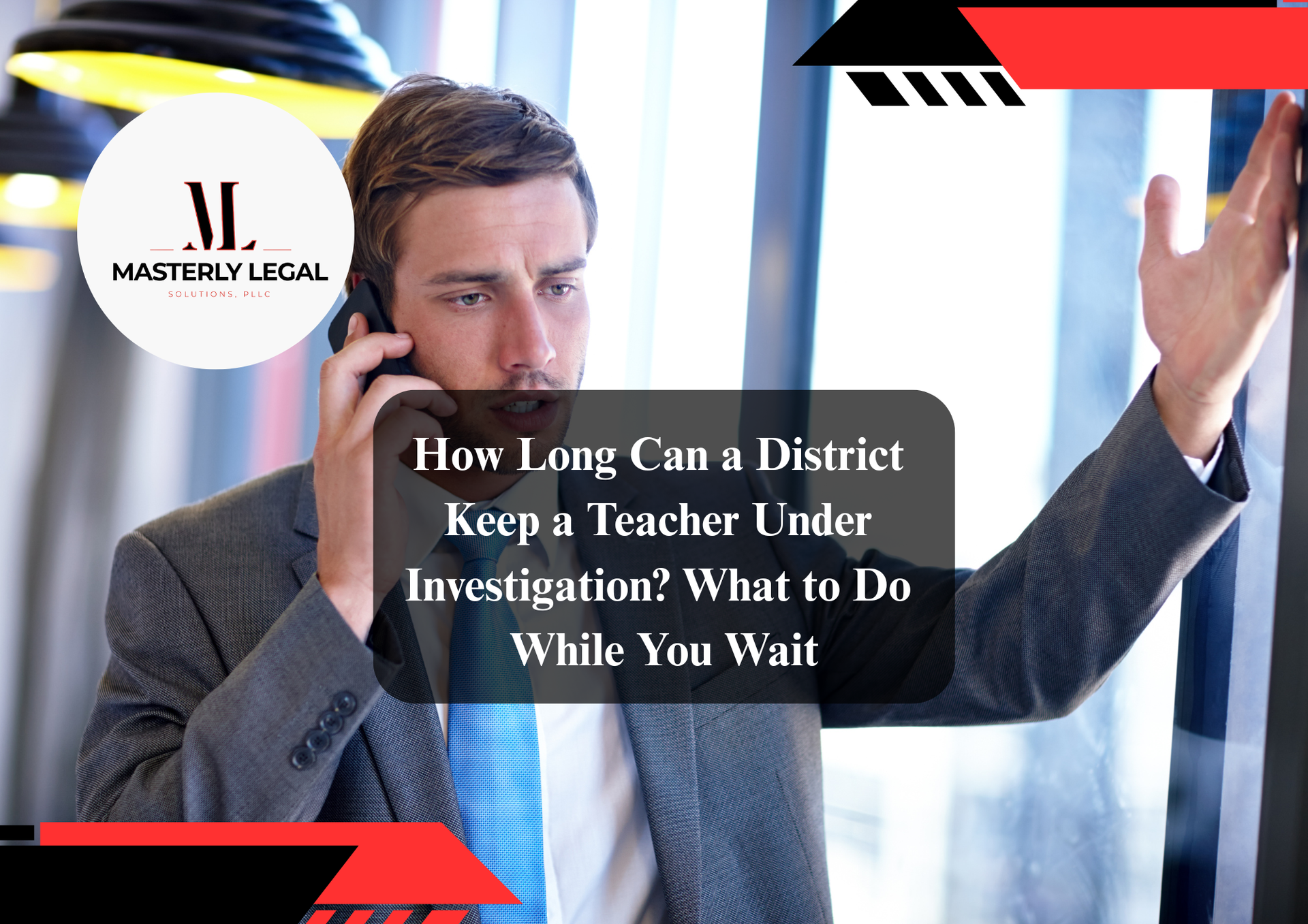Medical Crises Strike Without Warning—Here’s How Estate Planning Lawyers Protect You
Unexpected moments often change our lives the most. A sudden medical crisis can turn a normal day into a moment of fear, confusion, and uncertainty. When these situations arise, your loved ones may be forced to make decisions for you—decisions they may not feel prepared for. This article explains how working with an estate planning attorney empowers you to secure your future, protect your voice, and create a meaningful estate plan before emergencies occur. If you’ve put this off, you’re not alone—but today is the best day to begin safeguarding what matters most.
Understanding the Role of an Estate Planning Attorney in Medical Emergencies
When a medical crisis happens, your family shouldn’t have to guess about your wishes. An estate planning attorney helps you prepare clear instructions so decisions follow your values, not assumptions.
These attorneys understand how health decisions, financial matters, and legal documents intersect during medical emergencies. Their experience helps you create an estate plan that protects your interests even if you lose the ability to speak for yourself.
A medical crisis is already stressful enough. With a legally sound estate plan, your family can navigate those moments with clarity rather than confusion.
How an Estate Plan Protects You During a Medical Crisis
Your estate plan isn’t just about passing down assets—it’s about protecting your medical choices. Every adult should have instructions in place that guide loved ones when they must act on your behalf.
A well-designed estate plan includes several medical directives that outline your wishes. Without these documents, decisions may fall into the hands of the wrong person or cause conflict among family members.
Working with an estate planning attorney ensures your estate plan fully reflects your needs, preferences, and long-term goals.
Recognizing How Fast a Medical Emergency Escalates
Medical crises rarely wait for your schedule to open up. A heart attack, stroke, or sudden illness may leave you unable to communicate within minutes.
During these moments, your loved ones may feel lost without guidance. This is why an estate plan matters—not only at the end of life, but during any moment where you lose capacity.
An attorney helps you identify the essential documents you need so your medical care is handled the way you intended.
Planning for Incapacity Before It Happens
No one likes imagining a future where they can’t speak or make decisions, but planning ahead protects your autonomy. Medical directives allow you to communicate your wishes clearly, even when you physically can’t.
Estate planning lawyers help you create legal documents that outline who will step in if you face incapacity. This reduces the burden on your family and ensures your chosen decision-maker honors your values.
With proper planning, incapacity doesn’t silence your voice—it strengthens it.
Using a Power of Attorney for Healthcare Decisions
A medical or healthcare power of attorney gives someone you trust the legal authority to make health decisions when you can’t.
Your attorney helps you choose the right person for the role. This should be someone who understands your values and can remain calm under pressure.
A healthcare power of attorney is one of the most important legal documents in an estate plan because it ensures your wishes are respected during a crisis.
Understanding the Importance of a Living Will
A living will (also called an advance directive) outlines your preferences for life-sustaining treatment and other end-of-life medical choices.
An estate planning attorney can help you draft clear instructions that medical professionals must follow. This document prevents agonizing disagreements between family members when emotions are already high.
With a living will, you maintain control over your care even in moments where others must make choices for you.
How a Trust Supports Your Medical and Financial Stability
Some people use a trust to manage assets during incapacity. This ensures that bills, medical expenses, and other financial needs are covered without court intervention.
Your attorney may recommend a revocable living trust as part of a comprehensive estate plan. It keeps your affairs private and allows someone you designate to manage your assets seamlessly.
A trust is a powerful tool that provides stability during medical emergencies and long-term health challenges.
Why Families Need a Comprehensive Estate Plan
A comprehensive estate plan covers more than medical decisions. It also addresses financial stability, asset protection, and long-term care arrangements.
Estate planning attorneys help you take everything into account—from your home and finances to your medical preferences and dependent care.
When a crisis hits, your family won’t scramble. They will have a complete, thoughtful plan to follow.
Creating an Estate Plan That Reflects Your Personal Values
Every person has unique beliefs, cultural expectations, and personal choices that shape their medical care. A skilled estate planning attorney helps you express those values clearly within your estate plan.
Maybe you want specific treatments, or maybe you want to avoid them. Your estate plan ensures these wishes are honored.
Your estate is more than assets—it’s your voice, your future, and your legacy.
How Estate Planning Helps Blended Families Avoid Conflict
Blended families often face difficult decisions during medical emergencies. Each family member may have different opinions, and tension can arise quickly.
A clear estate plan outlines exactly who has authority and how decisions should be made. This prevents disputes and protects the relationships you value most.
Estate planning attorneys understand these challenges and can help blended families create stable, conflict-free plans.
How Your Attorney Helps You Navigate State-Specific Laws
Estate planning laws vary from state to state. That means generic online estate forms may not be enforceable or may leave gaps that create severe legal problems.
An estate planning attorney ensures that your estate plan and legal documents follow state-specific rules. This protects your estate from unnecessary probate issues and ensures your decisions are legally binding.
Working with an attorney gives you confidence that your estate plan will work exactly as intended.
The Value of Working With an Experienced Estate Planning Professional
An experienced estate planning attorney understands medical directives, state laws, and the long-term effects of your estate plan better than any online template.
They consider your assets, medical needs, minor children, long-term care preferences, and more. Their experience helps you create a plan that is complete and personalized.
This is the difference between a generic form and a truly protective legal plan.
Questions to Ask During Your Initial Meeting
When you meet with an estate planning lawyer for the first time, you may have many questions—or you may not know what to ask. Your attorney can help guide the conversation.
Some helpful questions include:
- Who will make my medical decisions if I become incapacitated?
- What documents do I need to protect my medical wishes?
- How does my estate plan support my family during an emergency?
Asking the right questions helps you begin your estate planning process with confidence.
How an Attorney Can Help You Make Future Health Decisions
A medical crisis can leave you feeling powerless. But with proper planning, your future care can follow your preferences—no matter what.
Your attorney helps you identify your priorities, such as comfort-focused care, resuscitation decisions, or long-term treatment approaches. With these choices in writing, your medical team is obligated to follow them.
Your medical wishes should never be a mystery. With a clear estate plan, they won’t be.
Ensuring That Your Wishes Are Followed During a Crisis
Your estate planning attorney ensures your medical directives are enforceable. This means hospitals, doctors, and loved ones must respect the instructions you’ve outlined.
The clarity of your estate plan reduces stress, conflict, and last-minute decision-making. It also prevents family members from questioning your intentions.
Your voice remains at the center of every decision.
How an Estate Plan Reduces Probate and Legal Challenges
While medical directives focus on health decisions, your estate plan also plays a role in reducing future probate issues.
An attorney can help you organize your estate to minimize probate court involvement and protect your family from delays or unexpected costs.
With proactive planning, your estate remains secure and easier for loved ones to navigate.
Reviewing Your Estate Plan After Major Life Events
Life changes—your estate plan should, too. Marriage, divorce, a new child, a health diagnosis, or a career change can reshape your estate planning needs.
An estate planning professional helps you update your documents as your life evolves. Reviewing your estate plan every few years ensures it remains current, relevant, and effective.
Your future is never static. Your plan shouldn’t be either.
The Hidden Risks of Not Having a Medical Directive
Without medical directives, your family may face:
- Confusion about your wishes
- Conflict between siblings or spouses
- Delays in medical care
- Decisions made by courts instead of loved ones
These outcomes are avoidable. An estate planning attorney ensures your choices are clear and enforceable.
How to Begin Your Estate Planning Journey
Starting your estate plan is easier than most people think. It begins with a conversation about your goals, your concerns, and your priorities.
Your attorney will help you outline your wishes, choose decision-makers, and draft legally binding documents.
Taking this first step provides immediate peace of mind.
Key Takeaways to Help You Move Forward
- Medical crises happen fast—planning ahead gives you control.
- An estate planning attorney ensures your medical wishes are honored.
- A healthcare power of attorney and living will protect your voice during incapacity.
- A comprehensive estate plan supports your family emotionally and financially.
- Planning is an act of love, clarity, and responsibility.

Find an Estate Planning Attorney: How to Choose the Right Estate Planner
When you need an estate planning attorney, working with an attorney who specializes in estate planning and trust and estate matters can make a significant difference. Experienced attorneys at a reputable law firm or accredited estate practice will help you create a customized estate plan that addresses death or incapacity, trust administration, estate tax planning, and elder law concerns.
Why hire an estate planning attorney?
An estate planning attorney can ensure your beneficiaries are protected, help set up a trust, prepare estate planning documents, and provide legal guidance on estate taxes or inheritance taxes. They can also help you determine whether advanced planning is needed for larger estates and coordinate with your financial advisor or financial planner to align tax planning and asset management.
How to find estate planning attorneys near you
- Ask friends or ask for referrals from a financial advisor, accountant, or attorney referral service.
- Vet candidates by checking the state bar and credentials such as membership in the American College of Trust and Estate Counsel or similar organizations.
- Look for an estate planning attorney who has trust and estate counsel experience and a track record in trust administration and estate planning experience.
What to look for during consultations
When choosing an estate planning attorney, consider asking about their specialization, whether they specialize in estate planning, and their experience with estate tax planning and trust administration. Many attorneys will provide an initial overview of estate planning costs, answer questions you may have, and help you decide which estate planning documents are appropriate. You should also discuss whether the law firm has an attorney who can assist with elder law, college planning, or complex estate matters.
Working with a team
Comprehensive planning often involves collaboration between your estate planner, a financial planner or financial advisor, and other professionals to complete your estate plan. An estate planning attorney can assist in coordinating these resources, helping you determine beneficiary designations, drafting wills and trusts, and ensuring your plans are updated as circumstances change.
Next steps
To find an estate planning attorney in your area, look at your estate plan, decide what legal needs you have, and contact attorneys in your area for consultations. Consider asking an attorney to vet your existing documents and provide options for advanced planning or probate avoidance. With the right attorney and team, you can create a plan that protects your family and assets according to your wishes.
Contact Masterly Legal Solutions
If you’ve been putting off creating or updating your estate plan, you’re not alone—but waiting until a crisis happens can leave your loved ones overwhelmed and unsure. At Masterly Legal Solutions, we help you take control of your future through clear, compassionate, and legally secure planning. Our estate planning attorney team is here to answer your questions, guide you through medical directives, and help you create a plan that protects your voice in every situation.
Call us at
(972) 236-5051 for a free consultation.
We’re here to help you feel confident, prepared, and fully protected.
This article is for educational purposes only and does not constitute legal advice. For guidance specific to your situation, please contact an attorney directly.
Looking for Legal & Business Solutions? Contact Us Now
Fill in the form or call us to set up a meeting














